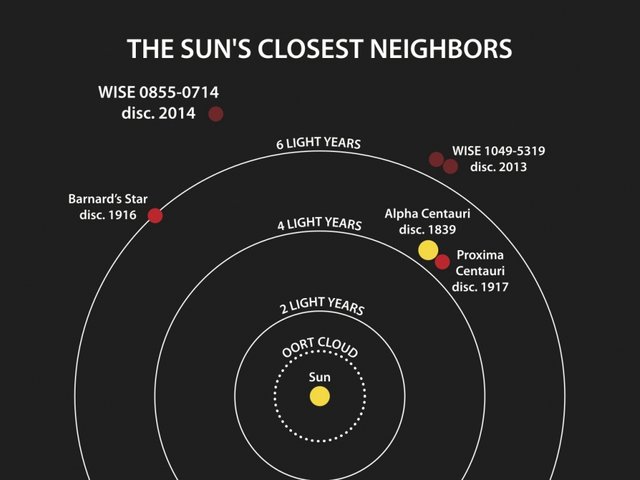A planet in the Goldie Locks zone confirmed on nearest neighboring star system.
It's official. The European Southern Observatory (ESO), arguably the most productive astronomical observatory on the planet, has confirmed an 'Earth-like' planet that would be a good candidate for life orbiting the closest star outside of our Solar System, Proxima Centauri. The planet is designated Proxima b, orbiting it's parent star every eleven days within it's Goldie Locks Zone. This rocky planet is similar to Earth, though it is larger, with temperatures that are suitable to sustain liquid water on it's surface.

Artists rendition of the view of the surface of Proxima b, courtesy of ESO.org
Proxima b is closer to it's star than our planet is to our yellow Sun due to Proxima Centauri being a much cooler red dwarf. Don't plan on any visits in the near future though, Proxima b is over four light years away from Earth in the constellation Centaurus.

This picture is courtesy of NASA.gov and Penn State University.
Want to know more? You can find ESO release here and technical information here
Did you find this interesting? Follow me @ruscion for additional content. Don't forget to comment and upvote to help support the Steemit community!
Wow, four lightyears, that is actually manageable. (Not today, but it will be loads easier to scout that planet, than to scout planets 100's of lightyears out.)
Magnificent finding,
Downvoting a post can decrease pending rewards and make it less visible. Common reasons:
Submit
From my rudimentary understanding, if we can achieve 20% the speed of light in space travel, it would take roughly 21 years to get there. Of course there are other obstacles to overcome once that could be achieved, however this does present a possible target outside of our Solar System to ponder over! Thanks for the read and comment @walkerlv
Downvoting a post can decrease pending rewards and make it less visible. Common reasons:
Submit
Laser powered solar sails could be used to achieve that kind of speed. They have already been proven to be useable (IKAROS-project) but the addition of driving it with a laser rather than with solar wind is still a huge step. Still, the relatily short distance removes many of the problems (like the insane lensen which would be required to be able to focus the laser beam hundreds of lightyears away.)
Downvoting a post can decrease pending rewards and make it less visible. Common reasons:
Submit
To quote Dr. Sagan: “The sky calls to us. If we do not destroy ourselves, we will one day venture to the stars.”
Downvoting a post can decrease pending rewards and make it less visible. Common reasons:
Submit